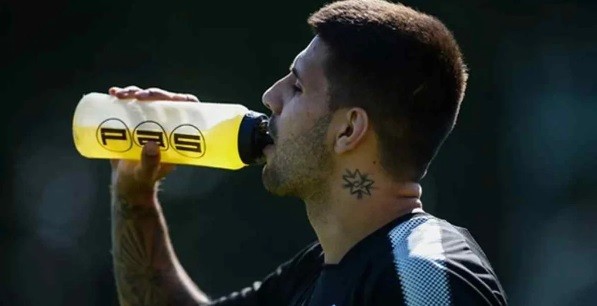Table of Contents
Creatine is one of the most extensively researched supplements in the field of sports nutrition. Within professional football, the question often arises: do footballers take creatine to enhance their performance? This article provides an authoritative, research-based overview of creatine’s role in football, including its physiological impact, benefits, safety considerations, and practical application for athletes competing at the highest levels.
Do Footballers Take Creatine? An Overview of Supplement Use in Professional Football
Creatine supplementation is prevalent among football players, especially at elite levels where marginal gains can influence match outcomes. Given the sport’s demands for explosive power, repeated sprints, and rapid recovery, creatine is a logical and scientifically supported addition to many players’ nutritional strategies. However, adoption rates vary depending on individual needs, club policies, and regional supplement regulations.
The Biochemical Role of Creatine in Football Performance
Creatine functions as a key contributor to the phosphocreatine energy system, which rapidly regenerates ATP—the primary energy molecule used during short-duration, high-intensity efforts. Footballers rely heavily on this energy pathway during sprints, tackles, jumps, and other explosive actions. By increasing intramuscular creatine stores, supplementation enhances the muscle’s ability to sustain repeated bouts of high-intensity activity, thereby improving overall performance and delaying fatigue.
Performance Enhancements Supported by Scientific Evidence
Extensive research supports several benefits of creatine supplementation relevant to footballers:
- Enhanced Muscular Strength and Power: Increased phosphocreatine availability facilitates greater force production during sprinting and resistance exercises.
- Accelerated Recovery: Creatine contributes to faster ATP replenishment, improving recovery between training sets and in-game exertions.
- Augmented Training Adaptations: When combined with structured resistance training, creatine supports greater increases in lean muscle mass and strength, critical for the physical demands of professional football.
Meta-analyses and controlled trials consistently demonstrate creatine’s efficacy in improving anaerobic performance, a fundamental aspect of elite football.
Usage Trends and Perceptions Among Professional Footballers
Creatine supplementation is common within professional football environments, though myths regarding its side effects—such as unwanted weight gain or dehydration—persist. Many clubs employ sports nutritionists who advocate for evidence-based creatine use, particularly for players whose positions require high-intensity bursts.
While some high-profile players publicly endorse creatine, individual use varies due to differences in cultural attitudes, education, and regulatory constraints. Increasing awareness and education are essential to dispel misconceptions and promote informed, safe supplementation practices.
Safety Profile and Supplementation Guidelines for Football Players
Creatine is widely regarded as safe when used responsibly, but players should consider the following:
- Potential Side Effects: Minor gastrointestinal discomfort or water retention may occur but are usually transient and dose-dependent.
- Hydration Needs: Maintaining adequate fluid intake is essential, particularly during intense training phases.
- Health Precautions: Individuals with pre-existing kidney conditions should seek medical advice before initiating creatine supplementation.
Optimal creatine use involves high-purity products, adherence to dosing protocols, and professional oversight to ensure safety and maximize benefits.
Practical Recommendations for Creatine Integration in Football Training
For effective implementation, footballers should consider these supplementation strategies:
- Loading Phase (Optional): Approximately 20 grams per day, divided into 4 doses, for 5–7 days to rapidly saturate muscle creatine stores.
- Maintenance Phase: Daily intake of 3–5 grams to maintain elevated creatine levels.
- Timing: Supplementation can be taken pre- or post-exercise, with some evidence favoring post-workout ingestion alongside carbohydrates for enhanced uptake.
- Consistency: Daily supplementation is crucial to sustain performance benefits.
- Synergy with Training: Creatine is most effective when combined with regular high-intensity training and resistance exercises.
Athletes should monitor their response and consult sports nutrition professionals to tailor creatine protocols to their individual physiology and performance goals.
Conclusion
Do footballers take creatine? The answer is a qualified yes—creatine is a scientifically validated supplement that many professional footballers incorporate to enhance strength, power, and recovery. When used judiciously within a comprehensive nutrition and training program, creatine supports the physical demands of modern football, contributing to improved athletic performance and competitive advantage.
Footballers and coaching staff aiming to optimize player output would benefit from understanding creatine’s role, adhering to evidence-based supplementation practices, and engaging qualified nutrition experts to ensure safe and effective use.








